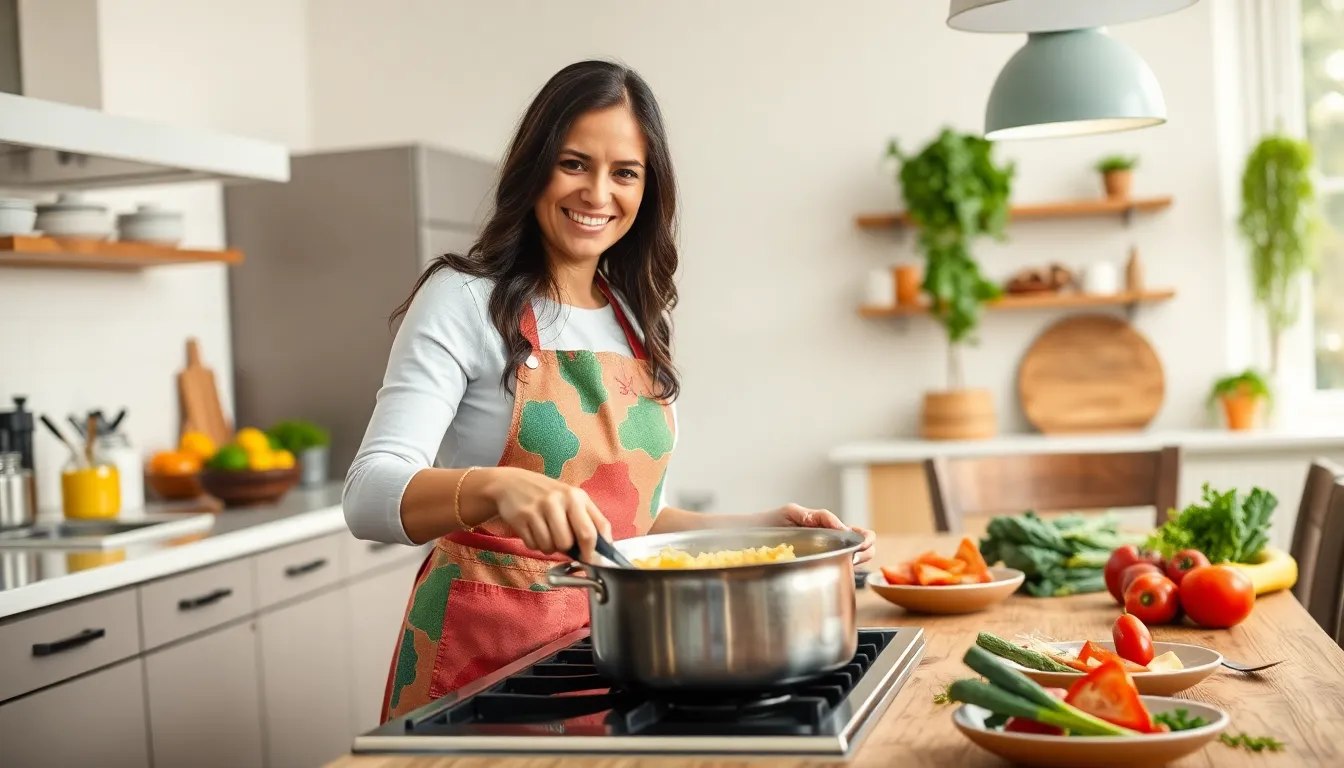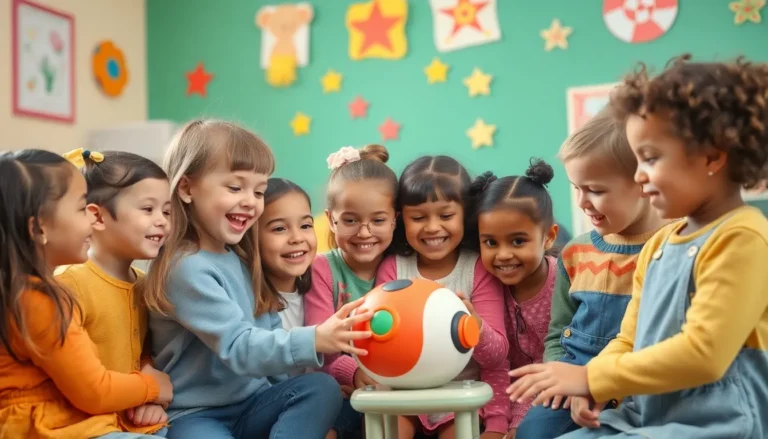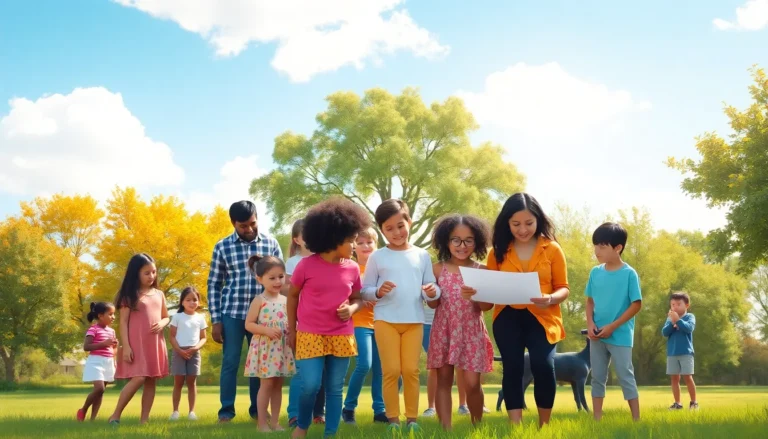Table of Contents
ToggleCooking isn’t just about throwing ingredients together; it’s a delightful adventure waiting to unfold in the kitchen. Whether you’re a seasoned chef or someone who thinks “al dente” is a fancy Italian coffee, there’s a world of cooking activities that can transform your culinary game. Imagine whipping up a gourmet meal while wearing a chef’s hat—yes, even if it’s just for your cat.
Benefits of Cooking Activities
Cooking activities offer numerous advantages that extend beyond the kitchen. Engaging in cooking fosters important skills that apply to daily life and encourages healthier lifestyle choices.
Enhancing Life Skills
Cooking builds essential life skills like planning, organization, and time management. He learns to follow recipes, which cultivates the discipline needed for adhering to instructions. Problem-solving emerges as they encounter unexpected challenges, such as ingredient substitutions. Creativity thrives as individuals experiment with flavors and techniques. Teamwork surfaces when cooking with family or friends, strengthening communication and collaboration. Each cooking session enhances confidence, reinforcing a sense of accomplishment as one prepares a meal.
Promoting Healthy Eating Habits
Cooking encourages healthier eating habits by providing control over ingredients. She can select fresh vegetables and whole grains, reducing reliance on processed foods. Nutrition awareness increases as individuals learn about food groups and portion sizes. Regular cooking fosters a deeper understanding of meal preparation, promoting mindful eating practices. Budgeting skills develop when planning meals, as individuals seek cost-effective options without sacrificing quality. Such habits contribute to long-term health, supporting balanced diets and improved overall well-being.
Types of Cooking Activities
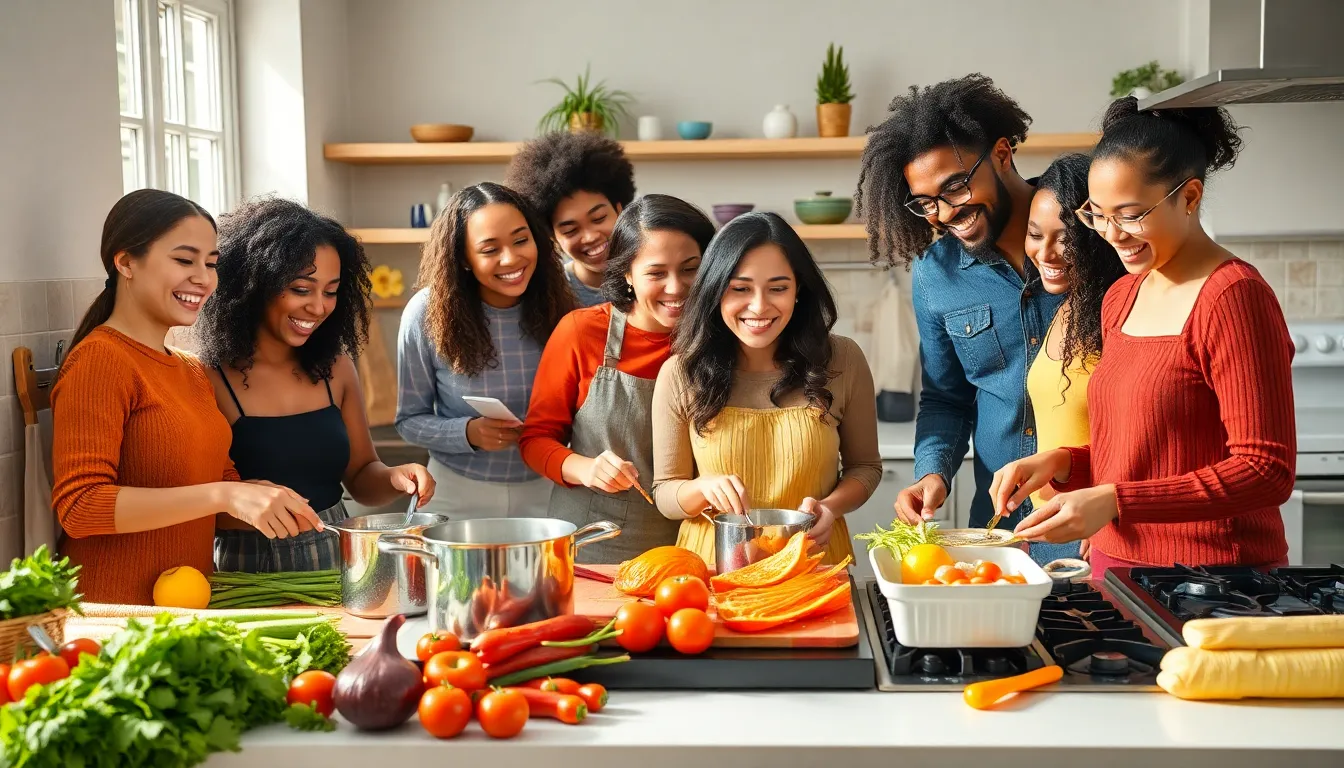
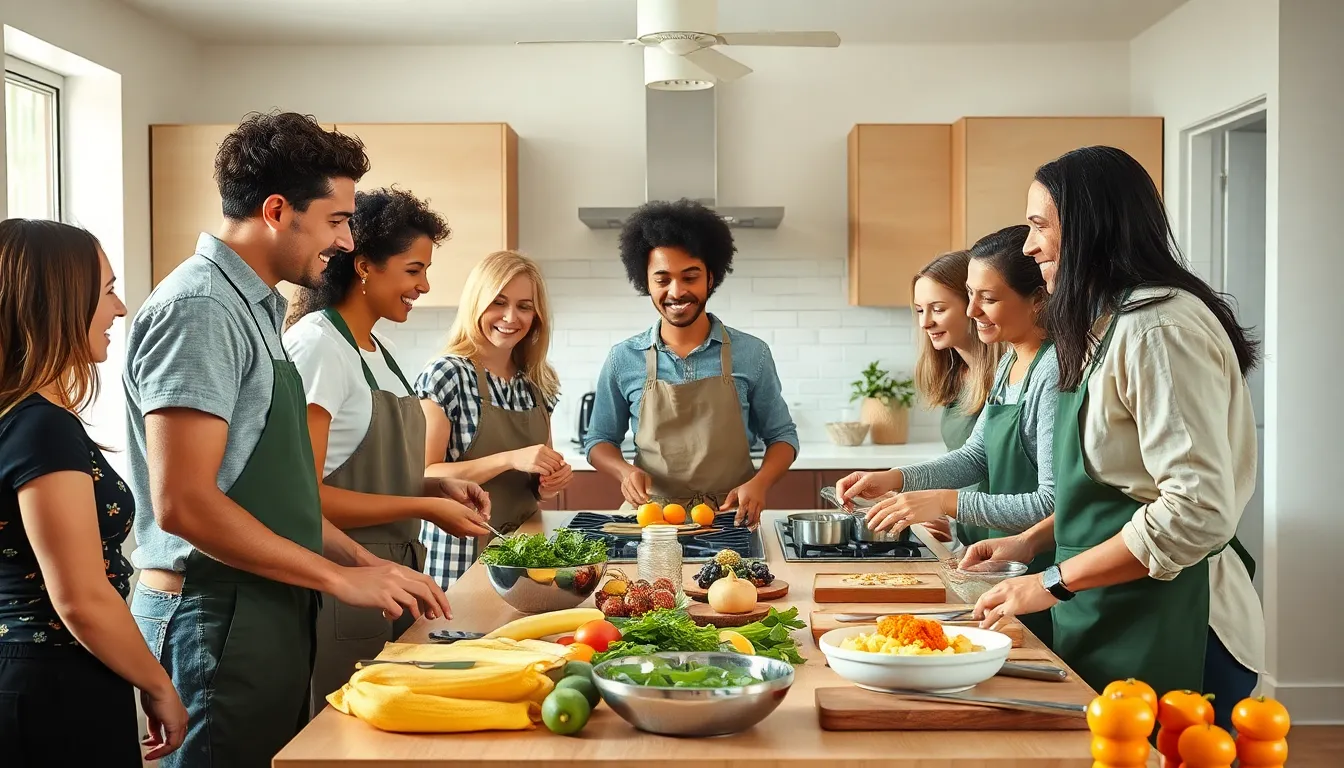
Cooking activities can vary widely, leading to unique experiences and skill development. Engaging in different types enhances creativity and fosters a deeper appreciation for food.
Individual Cooking Projects
Individual cooking projects allow one to explore personal tastes and techniques. Preparing a new recipe, for instance, challenges culinary skills while encouraging experimentation. Baking a cake or crafting homemade pasta showcases creativity and precision. One can also try meal prepping for the week, promoting healthier eating habits and efficient time management. Each project offers a chance to learn and discover new flavors.
Group Cooking Experiences
Group cooking experiences promote collaboration and social connections. Preparing a meal together encourages teamwork and enhances communication skills. Participants can host cooking parties where they share recipes or cuisines from different cultures. Cooking classes create a shared learning environment, allowing individuals to master skills as a group. Ultimately, these experiences foster friendships and build lasting memories through the art of cooking.
Cooking Activities for Different Age Groups
Cooking activities vary significantly based on age, offering opportunities for everyone to engage creatively in the kitchen.
Cooking with Kids
Engaging children in cooking fosters both fun and learning. Simple tasks like washing vegetables or stirring batter allow them to develop culinary skills. Using age-appropriate tools enhances safety while building confidence in the kitchen. Recipes like homemade pizza or colorful smoothies get kids excited about healthy eating. Learning measurements through baking teaches math concepts. Involving children in meal planning encourages creativity and ownership over their food choices. Each cooking session provides memorable moments that strengthen family bonds.
Cooking for Adults
Cooking activities for adults can focus on sophistication and skill enhancement. Trying new recipes boosts culinary abilities and expands knowledge of global cuisines. Group cooking classes promote teamwork and camaraderie, leading to shared experiences and friendships. Meal prepping for the week saves time and encourages healthier eating habits. Culinary challenges, such as themed cooking nights, spark creativity and experimentation with flavors. Exploring advanced techniques develops confidence and mastery of various cooking methods. Overall, adult cooking activities create opportunities for personal growth and enjoyable social interactions.
Tips for Successful Cooking Activities
Successful cooking activities rely on effective planning and execution. Preparation enhances enjoyment and minimizes stress during the cooking process.
Planning and Preparation
Select recipes that align with skill levels and available ingredients. Create a shopping list to ensure all necessary items are on hand. Gather equipment before starting to streamline the cooking process. Measure ingredients accurately to avoid mistakes and enhance flavors. Allocate enough time for each step, considering the complexity of the dish. Involve others in the planning phase to encourage creativity and share ideas, making the cooking experience more collaborative.
Safety Considerations
Start by maintaining a clean workspace to prevent cross-contamination. Always wash hands before and after handling food. Use separate cutting boards for raw meat and vegetables to avoid foodborne illnesses. Ensure knives and sharp tools are handled carefully, emphasizing safety for all participants. Keep hot surfaces and boiling liquids out of reach of children. Store leftovers promptly to maintain food safety and freshness. Remind everyone to stay alert and focused while cooking to reduce accidents.
Cooking activities offer a unique blend of creativity and practicality that enriches lives in many ways. They provide opportunities for personal growth while fostering connections with others. Whether it’s whipping up a quick meal alone or collaborating with friends, the joy of cooking is undeniable.
Engaging in these activities not only promotes healthier eating habits but also cultivates essential life skills. With the right approach and a little planning, anyone can turn cooking into a rewarding experience. Embracing the culinary journey can lead to delicious meals and cherished memories, making it a worthwhile endeavor for individuals and families alike.

